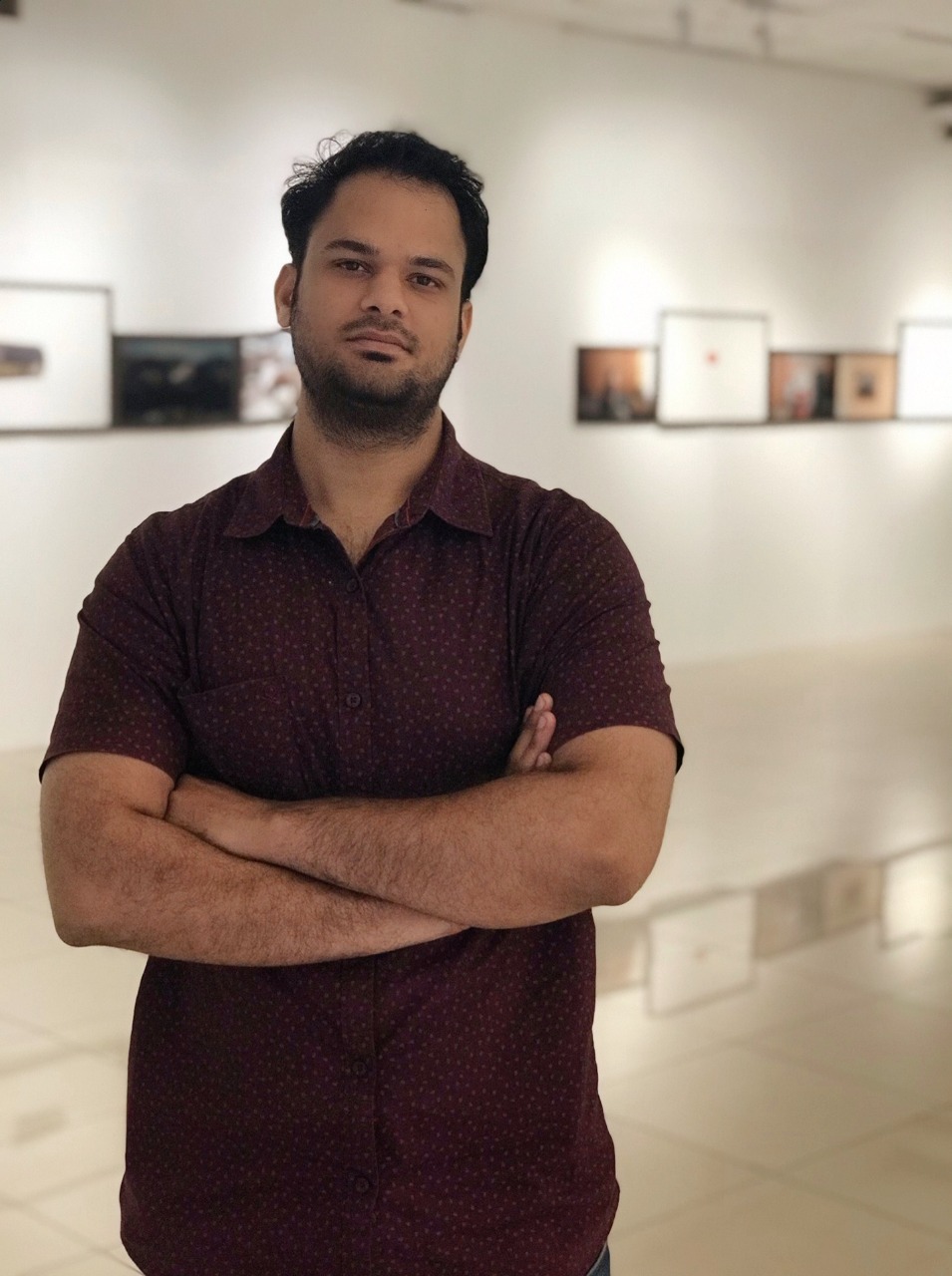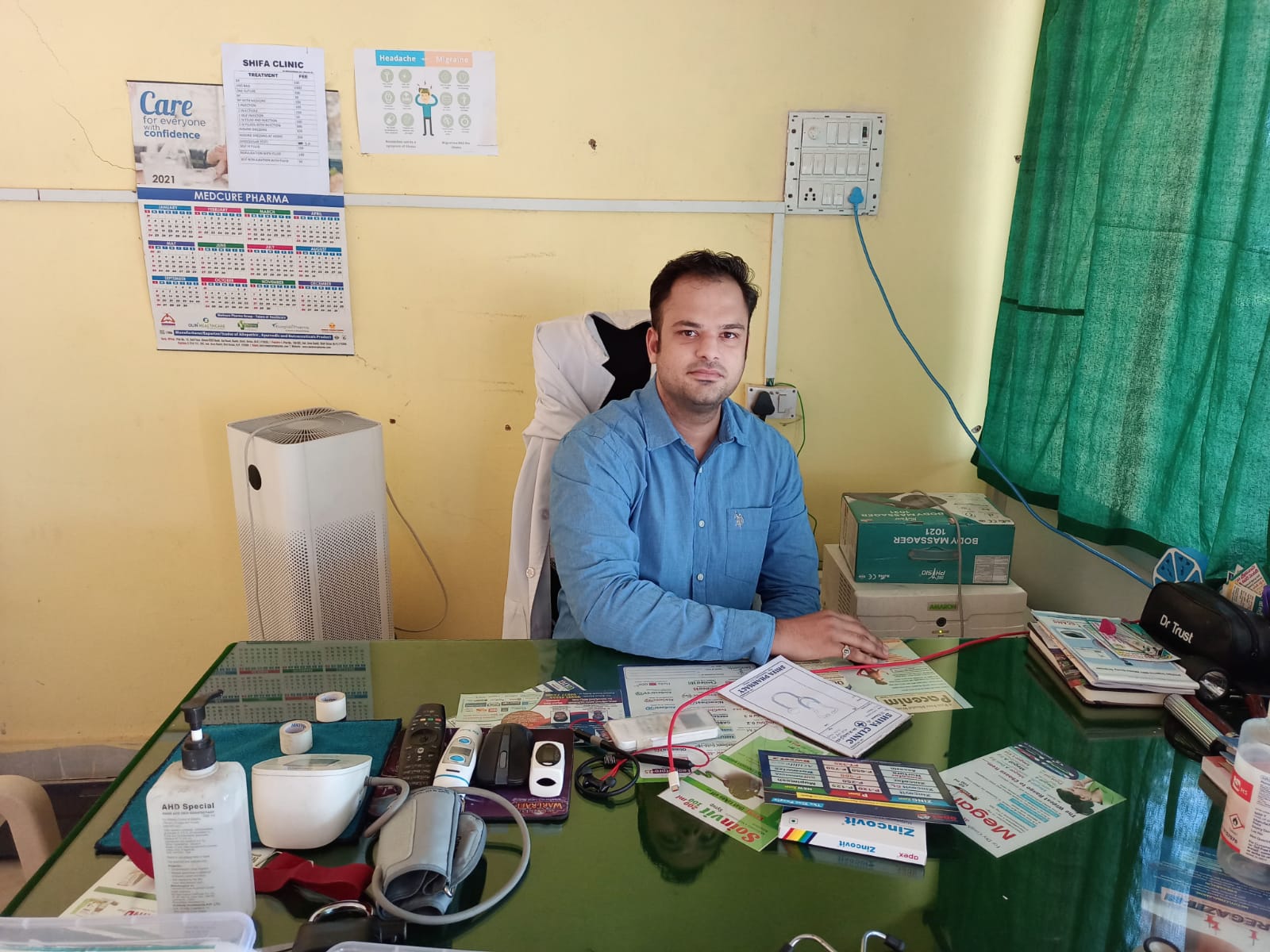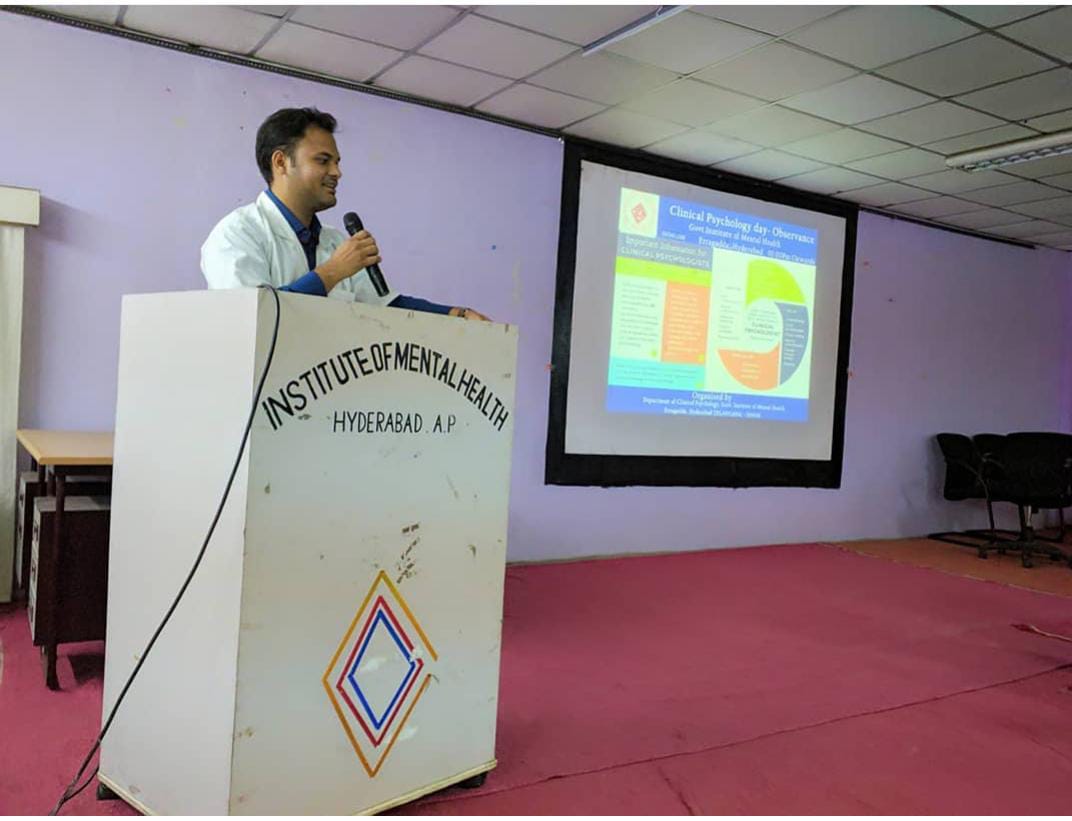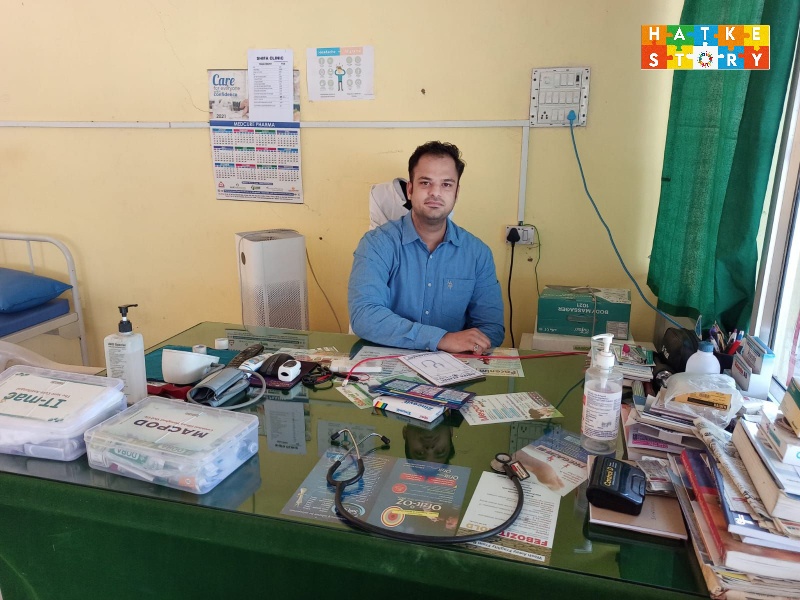Dealing with Coronavirus has been extremely challenging for all of us. Not only our country but the entire world is bearing the brunt of the deadly virus. It has affected our physical health, economy, daily life, work, and financial status. Apart from these things, the pandemic has also affected our mental health negatively. However, people shy away from speaking about mental health due to the stigma attached to it.
They don’t want to discuss the topic in length, but we indeed need help. Extreme loneliness, quarantining at home, not meeting people, no traveling zone, and fear of catching the virus have drastically impacted our mental health.
So to help people, we got connected to Mohammed Aslam. He is a psychologist supporting people in this dire time to deal with their stress and anxiety. Let’s talk to him in this article.
Mohammed Aslam, tell us something about yourself.
I’m Mohammed Aslam. I’m a psychologist, and I did a master’s in Psychology and pursued a Diploma in management of BPD from Harvard medical school (ONLINE). In the initial phase of my career, I worked as an intern at an institute for mental health, Hyderabad.
Tell us more about your profession.
As I told you before, I’m a psychologist. My work is a bit different from Psychiatrist. They use both therapy and medicine to treat the patient. At the same time, we give therapy because not every mental health issue needs medication.
Like it is happening with covid patients and other people. They are affected by the pandemic, and the cause is social isolation, fear of catching the virus, financial instability, etc. We were used to social connections, meeting new people, and forming a group in the past. All these things are essential for our mental health. We are still adapting to this new online culture.
Can you tell me the medical treatment you follow? What are the therapies?
When somebody is facing depression, we deal with Psychotherapy, Cognitive Behaviour Therapy (CBT), Rational Emotive Behaviour Therapy (REBT), and other behavioral therapies. Firstly, we try to find the cause of the illness and how it affects us and then proceed with therapy.
If the patient has anxiety and stress, then what is the cause of it. They were then addressing its cognition level and how the patient responds emotionally or behaviorally.

What do you do in therapy?
Let me put it this way if somebody is suffering from stress. We address its worst problems. We try to find it out. We attempt to find if they face the situation or go through a trauma and anticipate the cause. Do we check how their body reacts to stress and whether the chosen coping strategies are right or wrong?
We find out the primary cause of the effect. Then we start the therapy and desensitization process, where we try to discover how the patient reacts to emotional behavior. After the full examination, we address the cognition and behavior history. Once the cause is identified, we begin the treatment.
What was your experience in Hyderabad, and what did you observe?
In Hyderabad, I worked for three different departments- outpatient, criminal ward, and intensive ward. In the outpatient, we used to check the levels of stress and anxiety. We examined patients’ mental disorders with criminal records and those who have attempted suicide multiple times in the criminal ward. Whereas in the intensive ward, we monitored severely sick people.
How do you treat depressed patients?
When the person is admitted, the first stage can be medication. If the person is inpatient and after two weeks on an outpatient basis, we start the psychotherapy procedure. Then rest of the therapy of identifying the cause follows, which I mentioned earlier.
Tell me the best and the worst experience you had while working as a Psychologist.
When I see patients suffering from mental health issues for one or two years, not being able to help them earlier is the worst experience, especially when they can’t seek mental healthcare due to financial issues. Being able to help and heal people mentally is my best experience.
What are the causes of mental illness?
In simple language, it can be through biochemical disorders with genetic factors and childhood experience if the patient has gone through any trauma. Mental is a vast subject, and many things can tick the brain negatively.
You have worked in the pandemic as well. How are quarantine and isolation affecting our lives? What are the impacts of Covid-19 on our mental health?
We are not made to live in isolation. We develop anxiety sitting in an isolated room. So it becomes a life-threatening situation. These situations can be natural or psychological as these iso-factual events create anxiety and stress. People are feeling lonely, bewildered, afraid, tensed, and many other negative emotions. These negative emotions are impacting their mental as well as physical health.

Do the symptoms related to general mental illness differ from the mental illness caused by COVID-19?
No, they are similar. The most common symptoms are anxiety, insomnia, cardiac illness, inability to remember names, and panic attacks. But the number of people affected by mental illnesses is increasing.
What is the most important thing for a patient in the recovery stage, and how psychology works in the recovery period?
See, psychology matters everywhere as the person’s psyche, i.e., mind, revolves around everything. Elemental immunity is what we generally use in the term Psycho immunology. I can explain it through an example. You might have noticed some people recovering faster than ordinary people from the situation or the trauma they have suffered, especially those who are mentally and emotionally strong. It happens because they can control their emotions, and their willpower is strong.
Whereas people who have been affected with COVID-19 have to look out what the criteria are. There are two types of stages, i.e., blunting stage and the monitoring stage. The blunting group knows enough about Covid, but we need to look after the monitoring group as they deal with vaccine hesitancy, the anxiety of contracting viruses, and many other fears and insecurities.
To help them, we provide particular suggestions to deal with the developing unusual emotions and symptoms. For example, we never knew that black fungus is caused due to COVID-19. So the patient may link any symptom with either Covid-19 or Black Fungus, but they can be emotional, mental, or physiological symptoms. However, they will add up in stress. Here awareness plays a huge role in cutting off unnecessary stress.
I remember dealing with a case in Telangana where the patient tested Covid positive. In the recovery period, I treated him for 11 days to reduce his stress and fear. Now, you can understand up to what extent people have been stigmatized and have gone through mental trauma.
People who are stigmatized should be taken care of, like regular check-ups, relaxation techniques, simple breathing techniques, etc. They should look out for their mental health and check whether they are developing or monitoring.
Do children too face mental illness or distress?
Of course, they do, but their physiological and mental stages are different. The type of anxiety or depression faced by children is not similar to adults. They have different kinds of physiological and mental symptoms which are not present in adults.
Elderly people can adapt and cope with the stress, but how can we expect a 5-year-old kid to drive him away? They stay at home, do not go to school, do not meet their friends, or play outdoor games. So they are suffering too.
The physiological trauma has increased from time to time in them as the children in my neighborhood are bored of listening to NO from their parents. That much aggression has been pumped up in them during the years. This aggression may lead to mental issues.

Are we overreacting to Corona Virus? What is your opinion?
If we look up to any news channel, they are only concerned about their TRP. In my opinion, they are spreading awareness but negativity and fear too. The local public and the government must know the truth, but we should also reach out to the people providing suggestions to deal with the situation.
People tend to assess the relative importance of issues by the ease they retrieve from memory, primarily determined by the media’s coverage. Because public interests can be easily aroused by dramatizing any news coverage, many important events are sidelined due to the importance given to negativity.
However, the current scenario is only building fear and hatred in the hearts of local people. It’s not correct to watch negative news all the time. You never know who is watching this. Negative news can leave diverse effects on children, teenagers, women, and senior citizens, leading to unnecessary suspicion, a sign of mental health issues.
What measures or practices can one do to avoid the side effects of the current situation?
Build a proper daily routine. People should maintain a sound sleep cycle, and it is the essential thing in life. Sleep rejuvenates the whole body, both mentally and physically. Staying up till 2 AM or 3 AM is not acceptable. I don’t mean that you have to wake up at 5 AM, but sleeping is mandatory at one particular time. This thing is missing from the routine. Sleeping at the correct time and waking up too is the best key to curb down the imbalance.
The second thing to be taken into consideration is food. Our digestive system controls physical or mental health. So take your healthy food at a particular time.
Then Practice basic breathing exercises for 5 to 10 minutes in the morning and evening. It benefits people a lot.
Moving forward, spending less digital time and more with family also reduces the stress and tension. Apart from it, avoid using social media too much, lessen your screen time on laptops and mobile phones. Replace the mobile phone with an Amazon Kindle or a book and read for at least 10 to 15 minutes every day. These minor changes will bring a massive change in your life only if you choose to follow them.
Don’t follow any motivational speakers or online therapists blindly. They don’t know how to treat mental health patients. They are certainly giving wrong ideas of toxic positivity to everyone. No influencer advises on cardiac problems or diabetes, or any such diseases. But they become experts in treating mental disorders without proper knowledge or degree. It’s up to you who to follow. So contact a genuine therapist.
Any suggestions to the people to deal with the mental health issues during the pandemic?
I want to say to people; please take the simple steps I suggested here. Opt for healthy habits and a good lifestyle. People who have less, moderate, or severe containment conditions should take a healthy leap towards their lifestyles. They should go for a walk for about an hour or two to stay fit. Having one meal together with family is a must in the routine to interact with each other. It will burst the building stress in their lives. Do not miss out on little things in search of huge ones. Also, stay positive. We will pass it.
Like us on FB, if you find our content interesting: https://www.facebook.com/hatkestoryofficial/
Do you have an interesting incident or experience to share with the world? Write to us, and together we can discuss how to weave your story and present it to the world. Would you mind sending us your story?







Comments are closed.